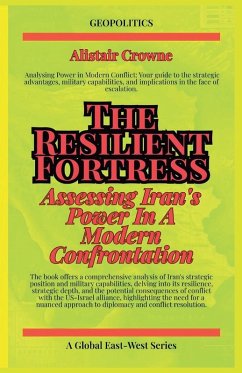
Fortress Built on Sand
The Structural Causes of Modern Warlordism
Versandkostenfrei!
Versandfertig in 6-10 Tagen
39,99 €
inkl. MwSt.

PAYBACK Punkte
20 °P sammeln!
Modern warlordism is a prominent feature of the post-Cold War era. Warlords present a major security threat in many regions of Africa and Asia. Although the international community has intervened in many warlord conflicts over the past decade and half, the results of these interventions are mixed. Such outcomes may stem from an incomplete assessment of the root causes of warlordism. Warlordism is a recurrent phenomenon in history, having appeared several times since the fall of the Roman Empire, and was always the sign of state weakness. A key factor in the warlordisation of many weak states t...
Modern warlordism is a prominent feature of the post-Cold War era. Warlords present a major security threat in many regions of Africa and Asia. Although the international community has intervened in many warlord conflicts over the past decade and half, the results of these interventions are mixed. Such outcomes may stem from an incomplete assessment of the root causes of warlordism. Warlordism is a recurrent phenomenon in history, having appeared several times since the fall of the Roman Empire, and was always the sign of state weakness. A key factor in the warlordisation of many weak states today is the imposition of the European nation state through colonisation and de-colonisation in areas that do not have the same historical experience as the originators of this form of political organisation. This monograph posits the international system and the nation state within as causes of warlordism, presents a vertical comparison between historical and modern warlords, and examines the functioning of warlord domains. The case of Afghanistan presents itself as an example to test the validity of the book.












